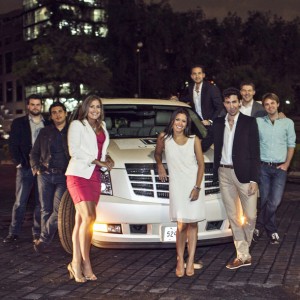“When I asked him what he thought of this, his response was a resounding “Hell no!” and he said he would find something else to do if this ever happened.”
“While doctors may be losing the battle for autonomy, I hope that the enterprising and fiercely independent Uber drivers never do.”
SUNEEL DHAND, MD | PHYSICIAN | APRIL 27, 2015
A couple of months ago I finally joined the swelling ranks of Uber customers. Several friends had been trying to persuade me for some time to start using the service, but me being generally skeptical of new technology (what they call a “late adopter”), it took an extreme situation to get me to finally download the app.
It was a freezing February evening, and I was just getting home from work. Boston had experienced yet another severe snow storm, and there was a parking ban in effect. I drove around my neighborhood for some time, and there was absolutely nowhere to park. Frustrated, I took the decision to drive to a nearby garage and leave my car there for the next few days. I was sick of shoveling and clearing the snow off my car every morning, and with even more snow forecast, I decided that I would just use alternative transportation to get to and from hospital until the weather eased a little.
So when I got home that night I did it: I made the decision to download Uber onto my iPhone. The following morning I used their screen interface and tracking system (which is slick, user-friendly and overall excellent) to hail my first Uber driver. They were outside my house in a matter of minutes, and dutifully drove me to the hospital in good time. I continued to use Uber for the rest of that week, until finally it was OK to get my car back. I was absolutely blown away by the service I got and since that time have been using them regularly — in at least a couple of different U.S. cities.
More than the actual service, I have also been highly impressed with the Uber drivers themselves. Perhaps I am lucky, or perhaps Boston attracts a different category of drivers, but I’ve met some really interesting people on my car journeys. Some of them have other full-time jobs (including in health care), some are still in school, and some are budding entrepreneurs who were starting up side businesses. I’ve been driven by men and women of all ages and backgrounds.
No disrespect to regular taxi drivers, but the conversations I’ve had with Uber drivers in the last two months have been far more interesting than the ones I’ve had with regular cab drivers over the last several years. They’ve told me stories about what brought them to driving with Uber and how the process works to get registered, have background checks, and then determine their own work schedule. There’s also another common theme that emerges: Uber drivers absolutely love what they do. They enjoy the fact that they work on their own terms and are free to earn as much or as little as they like. They are independent contractors and feel in control of their schedule. Most of all I’ve heard they really enjoy being their own boss and not being told what to do and when to do it.
Lots of them work very long hours, averaging 12 hours a day of driving, but were choosing to do so. Nearly all the drivers were educated (and heck, some of the cars I’ve been transported in have been high-end luxury models) and had high hopes and aspirations. One thing they would never do: Be a regular employed taxi driver.
So how does this tie into doctors and health care? Well, the last decade has seen relentless consolidation and amalgamation, with the majority of physicians moving towards a standard “employee” model. The days of the small group practice and solo-practitioner seem numbered. With any perceived improvement in work-life balance or employee benefits that this may bring, also comes a hefty price to pay. Employees will always have less control over their work life. Many things will be dictated from above about what they must and mustn’t do. These are the unavoidable parts of being an employee that suck. But that’s the trade-off.
The happiest physicians I still see are the ones who are in their own small practice and have not yet been taken over by a larger group. They may work harder (like any entrepreneur) but they wouldn’t have it any other way. What’s more, their patients seem to be happier and more satisfied too (a bit like me with the Uber drivers?). Yet, the reality is that consolidation is the direction of health care whether we like it or not.
The battles that Uber is fighting with entrenched organizations such as taxi firms are well publicized in the media. One Uber driver told me that there’s another big legal battle stating that Uber should ditch the private contractor model to make all Uber drivers “employees” of the company with a salary. When I asked him what he thought of this, his response was a resounding “Hell no!” and he said he would find something else to do if this ever happened. While doctors may be losing the battle for autonomy, I hope that the enterprising and fiercely independent Uber drivers never do.
Suneel Dhand is an internal medicine physician and author of Thomas Jefferson: Lessons from a Secret Buddha and High Percentage Wellness Steps: Natural, Proven, Everyday Steps to Improve Your Health & Well-being. He blogs at his self-titled site, Suneel Dhand.


